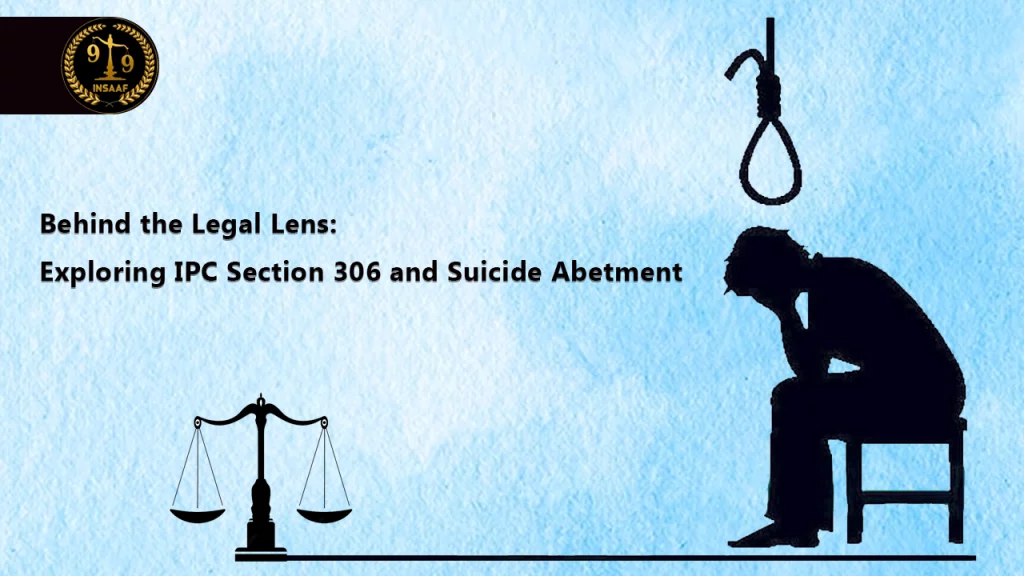

Online Legal Advice from Insaaf99® Online Lawyer Consultation in India


Online Legal Advice from Insaaf99® Online Lawyer Consultation in India

Section 306 of the Indian Penal Code (IPC) deals with the offense of abetment of suicide, a serious legal matter that addresses situations where individuals encourage, instigate, or aid others in taking their own lives. It is a non-bailable offense with a maximum punishment of imprisonment for ten years and a fine. In this article, we will delve into the intricacies of Section 306 IPC to gain a comprehensive understanding of its provisions.
Abetment of suicide is not limited to direct or explicit encouragement to commit suicide. It also encompasses a broader range of actions that create an environment or circumstances that drive an individual towards self-harm.
This includes:
To establish the offense of abetment of suicide under IPC Section 306, the prosecution must substantiate the following key elements:
Successfully proving these elements is crucial for securing a conviction under IPC Section 306, emphasizing the legal system's commitment to holding individuals accountable for their role in abetting suicide.

Individuals found guilty of abetment of suicide under Section 306 of the Indian Penal Code (IPC) can face significant legal consequences. Upon conviction, the accused may be subjected to imprisonment for a term extending up to ten years, along with the possibility of a fine. This stringent penalty underscores the severity of abetment of suicide and serves as a powerful deterrent against such action.
Abetment of suicide is not passive negligence; it is an active, deliberate involvement in another's tragic decision to end their life. By instigating or encouraging suicide, the abettor plays a direct role in irreversible outcomes.
The harsh penalties under Section 306 IPC reflect the gravity of this offense, serving as a potent deterrent. Imprisonment and fines aim to dissuade individuals from actions that could lead another towards suicide.
Punishment ensures accountability, holding those contributing to self-harm responsible. This upholds the sanctity of life, sending a resounding message: abetting suicide will not be tolerated.
Case Laws & Landmark Cases: Several landmark cases in India have interpreted Section 306 IPC, shaping its application:
These cases highlight the nuanced nature of abetment of suicide cases, requiring a thorough examination of the accused's intent and the direct link between their actions and the tragic outcome.
Abetment of suicide is a serious offense, emphasizing the gravity of human life. Strict legal measures are in place to hold those responsible accountable. If you're aware of someone in distress, seek immediate help through a suicide prevention hotline or professional mental health support. Early intervention is crucial to preventing tragic outcomes and ensuring individuals receive the assistance and care they need.
In IPC 306 cases, Insaaf99 plays a pivotal role by connecting individuals with experienced legal professionals. The platform simplifies the process of finding lawyers, ensuring swift access to legal advice. This accessibility is crucial in cases of abetment of suicide, as timely legal advice can significantly impact the outcome. Insaaf99 serves as a valuable resource, facilitating efficient communication and support for those navigating legal complexities related to Section 306 of the Indian Penal Code.